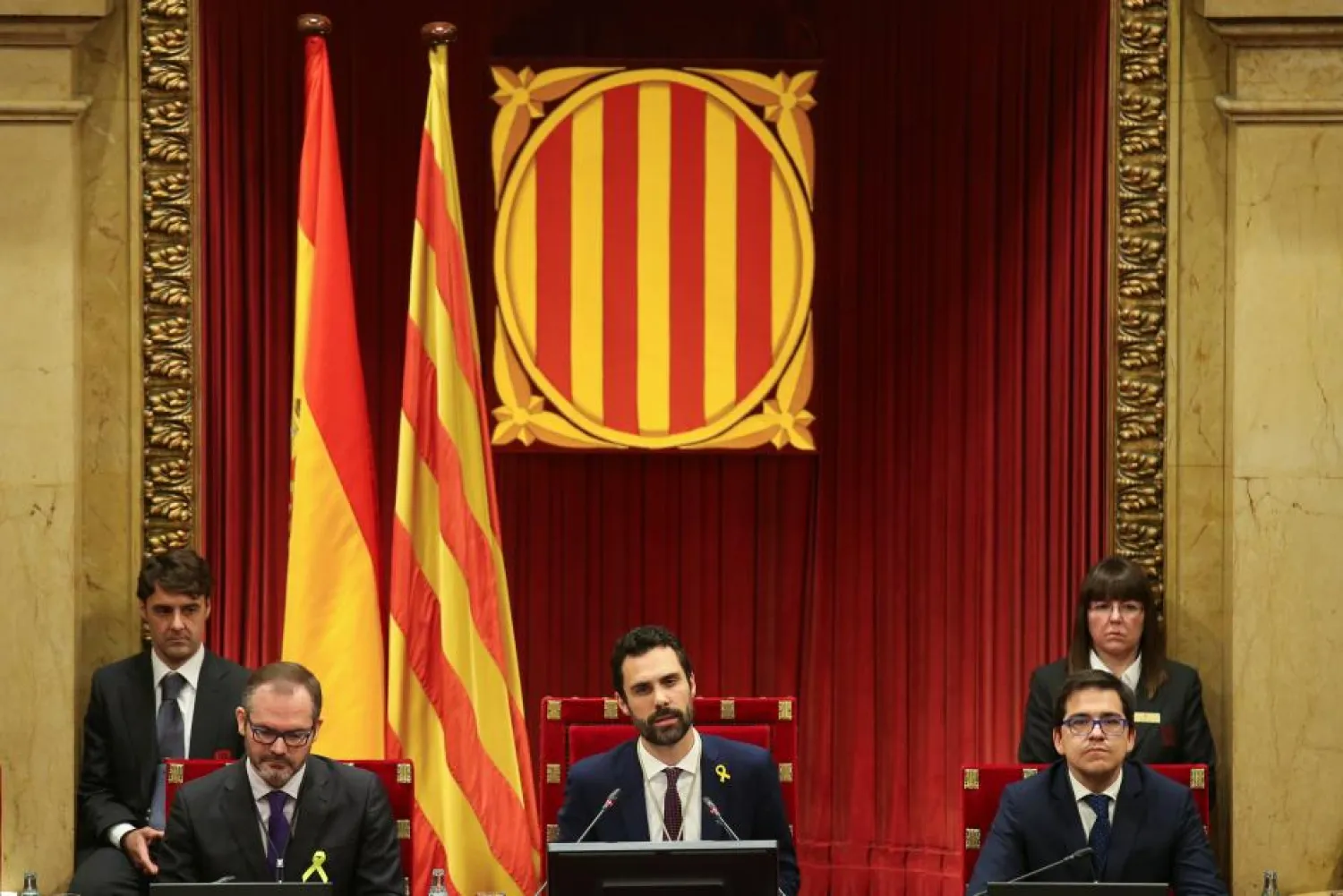Catalonia’s parliament appointed on Wednesday separatist leader Roger Torrent as speaker, shattering the fragile calm that has characterized relations with central government since it was elected in December.
The appointment also signals the possible return of sacked nationalist Carles Puigdemont as the region’s leader and the renewal of full-blown political confrontation with Madrid.
“The will of the Catalan people is to have President Puigdemont back” as head of government, pro-independence lawmaker Elsa Artadi told Reuters after the legislature - where secessionists hold a slim majority.
The new regional assembly was meeting for the first time.
Puigdemont is in self-imposed exile in Belgium, where he fled in October to avoid arrest and the threat of jail after Spanish Prime Minister Mariano Rajoy fired him from the same job for leading Catalonia’s independence bid.
A first vote to choose a new leader is likely on January 31, and Catalonia’s two main pro-independence parties reaffirmed late on Tuesday they would back Puigdemont.
Rajoy said he would not allow him to be reappointed - and rule - from Brussels. But in a possible sign of how such an arrangement might work, Puigdemont’s party posted a photo of a smiling Torrent speaking on a mobile in parliament, with a caption saying it was taken as the ex-leader congratulated him on his appointment.
“I am sure you will exercise the post with nobility and bravery, protecting institutions and the country,” Puigdemont told Torrent in a Tweet.
Following his appointment, Torrent declared: "I want democracy and coexistence to be the foundations of this term.”
He vowed at the same time to restore the self-government of Catalonia that is now in the hands of Madrid. He also said that, as speaker, he would defend the right of "all 135 voices in the chamber," including those fugitive or in jail.
But Ciutadans leader Ines Arrimadas criticized the inaugural session, saying, "We start the legislature as we finished the last one, with a parliament speaker who is going to work only for independence."
However, she pointed out that things had changed in the parliament because the secessionist bloc now had fewer seats and votes and the independence stance had no international support.
"No matter what happens, we are going to be the guarantors for Catalonia not to make any independence declaration," she said.
Triggering one of Spain’s biggest political crises since its return to democracy four decades ago, the previous Puigdemont-led Catalan administration made a unilateral declaration of independence in October following an illegal referendum.
The government in Madrid then imposed direct rule on the region and called elections there.
Rajoy on Monday dismissed the possibility of long-distance rule by Puigdemont as absurd and said Madrid would stay in charge of Catalonia if the ex-leader tried to govern from abroad.
The prime minister said he would contest in the courts any move to elect Puigdemont remotely.
The Catalan parliament’s own legal experts have also ruled that any president must be physically present in the assembly to be elected.
But pro-independence supporters remained defiant as they attached yellow ribbons to metal fences outside parliament and waved red and yellow Catalan flags.
“I know that we are going to have a lot of problems with the Spanish government but we are going to do it,” demonstrator Dolors Esplugas said. “On January 31, Carles Puigdemont is going to be appointed.”
Inside parliament, the seats of lawmakers absent abroad or in jail were also marked with giant yellow ribbons.
Not all are in sympathy, however, in a region split almost down the middle between pro and anti-separatists.
“It is a lie to say that Catalonia will be better off if we leave Spain,” said Joaquim Quintana, a visibly angry 62-year old Barcelona resident.









